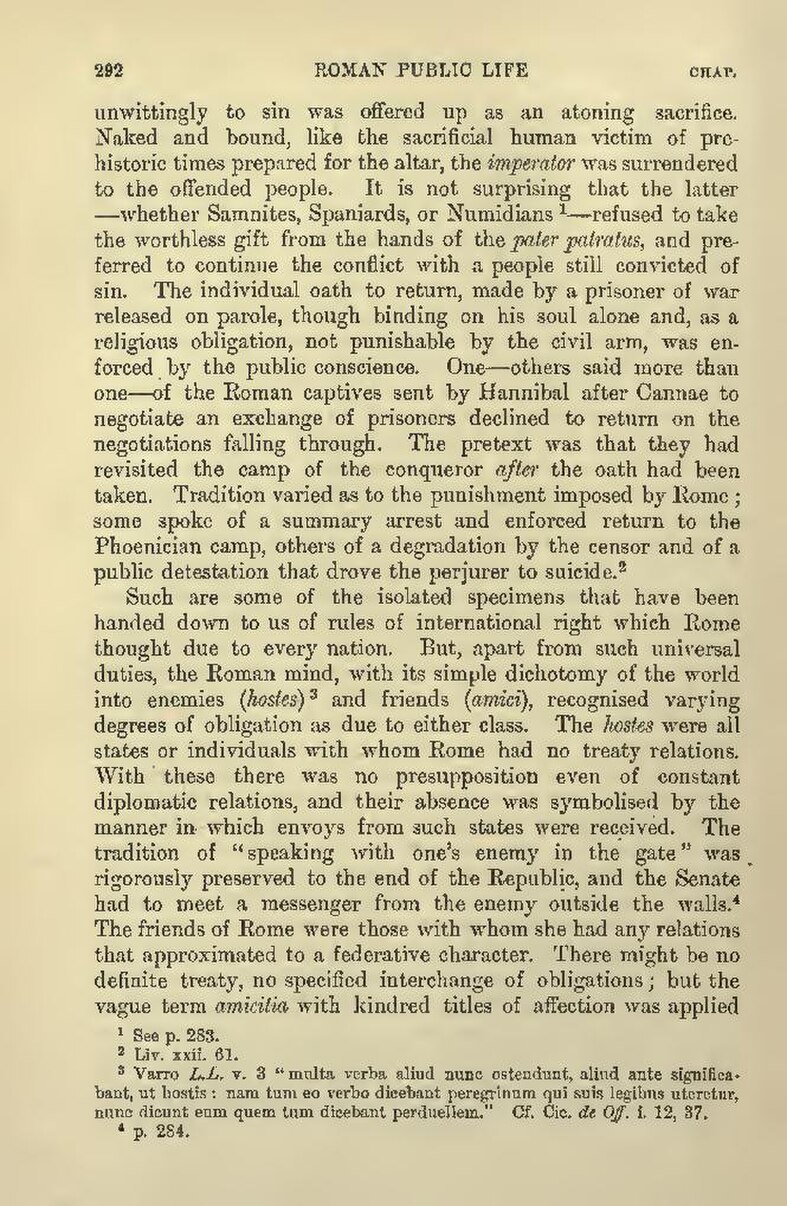unwittingly to sin was offered up as an atoning sacrifice. Naked and bound, like the sacrificial human victim of prehistoric times prepared for the altar, the imperator was surrendered to the offended people. It is not surprising that the latter—whether Samnites, Spaniards, or Numidians[1]—refused to take the worthless gift from the hands of the pater patratus, and preferred to continue the conflict with a people still convicted of sin. The individual oath to return, made by a prisoner of war released on parole, though binding on his soul alone and, as a religious obligation, not punishable by the civil arm, was enforced by the public conscience. One—others said more than one—of the Roman captives sent by Hannibal after Cannae to negotiate an exchange of prisoners declined to return on the negotiations falling through. The pretext was that they had revisited the camp of the conqueror after the oath had been taken. Tradition varied as to the punishment imposed by Rome; some spoke of a summary arrest and enforced return to the Phoenician camp, others of a degradation by the censor and of a public detestation that drove the perjurer to suicide.[2]
Such are some of the isolated specimens that have been handed down to us of rules of international right which Rome thought due to every nation. But, apart from such universal duties, the Roman mind, with its simple dichotomy of the world into enemies (hostes)[3] and friends (amici), recognised varying degrees of obligation as due to either class. The hostes were all states or individuals with whom Rome had no treaty relations. With these there was no presupposition even of constant diplomatic relations, and their absence was symbolised by the manner in which envoys from such states were received. The tradition of "speaking with one's enemy in the gate" was rigorously preserved to the end of the Republic, and the Senate had to meet a messenger from the enemy outside the walls.[4] The friends of Rome were those with whom she had any relations that approximated to a federative character. There might be no definite treaty, no specified interchange of obligations; but the vague term amicitia with kindred titles of affection was applied
